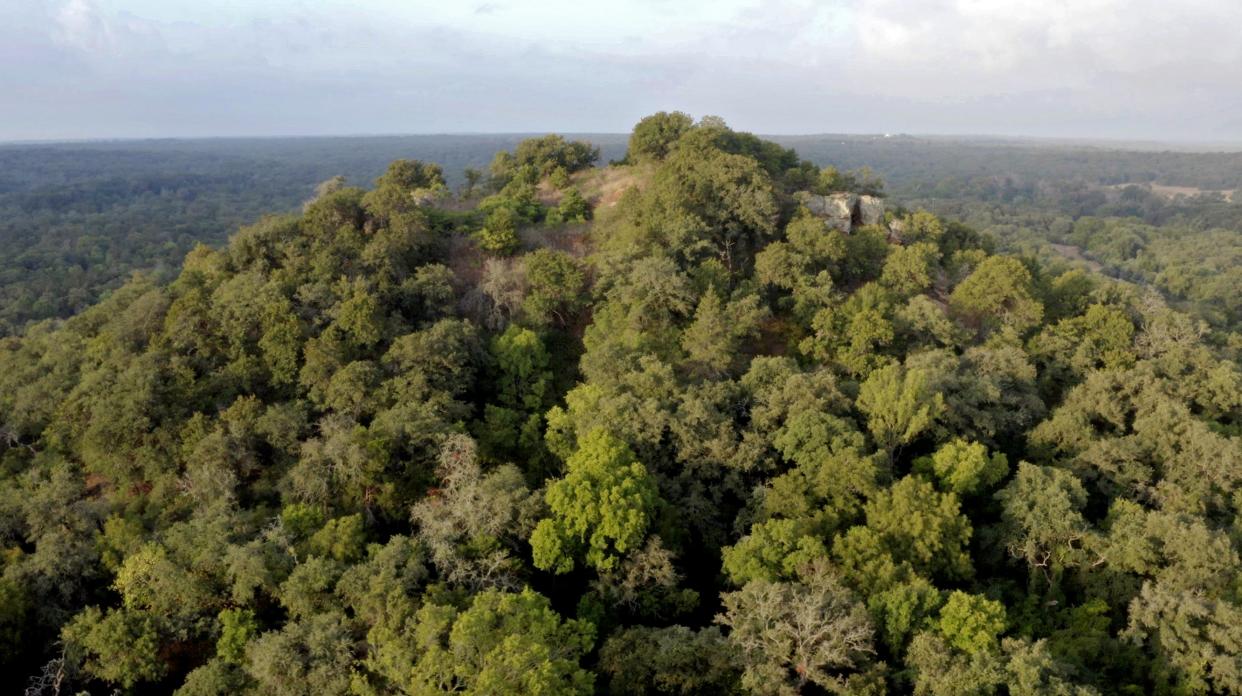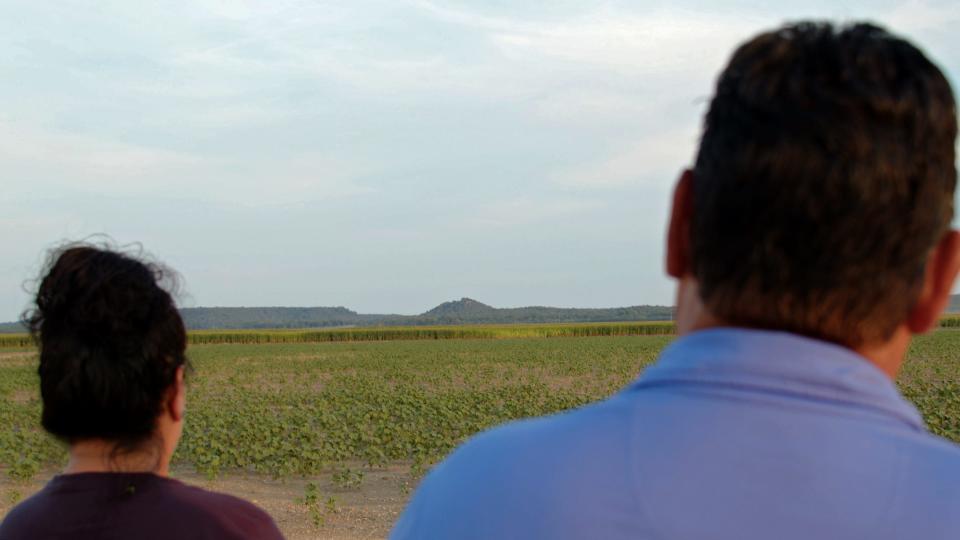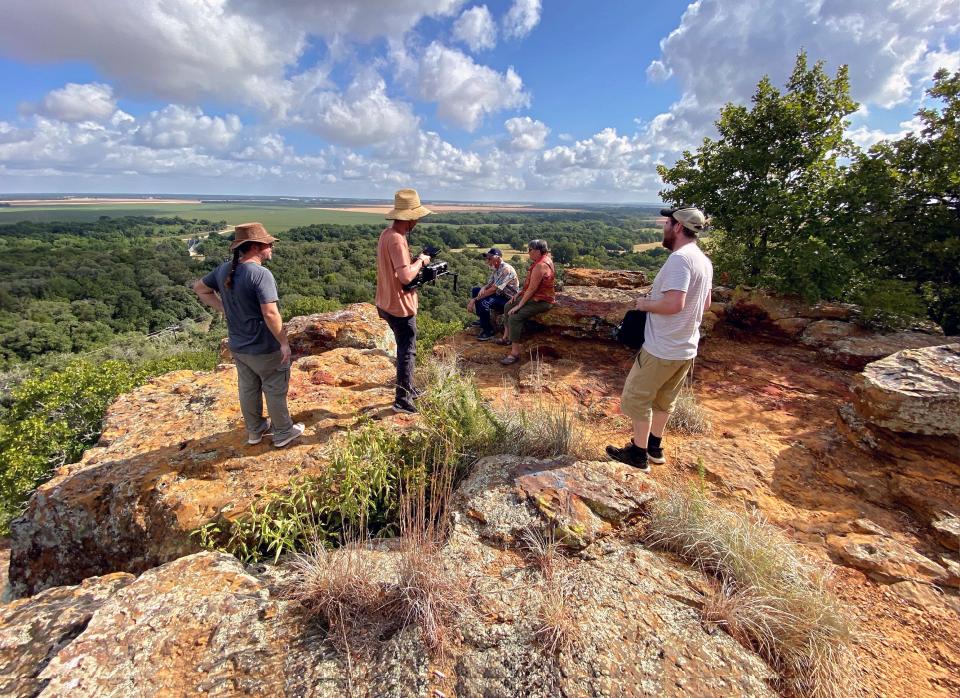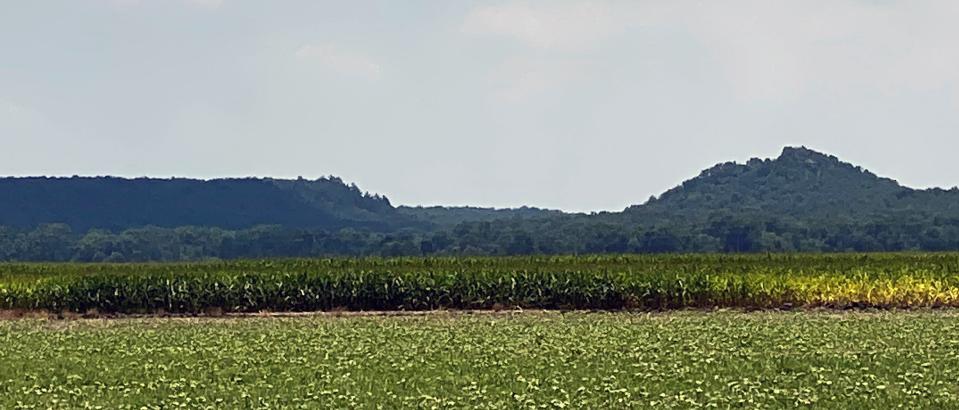The Tonkawa Tribe was forced out of its Texas homelands. Now it's reclaiming a sacred site

Russell Martin didn’t know how a trip to his tribe’s homelands would end. But as he hiked up the central Texas mountain where the Tonkawa people are from, the trek felt transformational.
The Tonkawa Tribe had been forced to cede the land more than a century ago. The tribe ended up in what is now northern Oklahoma, 450 miles from Naton Samox, the mountain at the center of its creation story.
Martin made the eight-hour drive there in November 2022 to meet with a documentary crew. The peak overlooks a sweeping rural landscape about 80 miles northeast of Austin. Martin took the scene in and knew the mountain had to be preserved.
“It was a very overwhelming feeling,” said Martin, who leads the tribe’s governing body. “You could imagine, picture in your head, what it would have been like hundreds of years ago.”
Recently, he returned to the mountain under different circumstances. He joined other Tonkawa leaders to celebrate the tribe buying back the mountain and land surrounding it.
“I really feel like God had a hand in this,” Martin said, adding that this purchase was unlike any other. “Never, ever has anything moved along so smoothly and quickly as this project.”

More: Can Oklahoma tax tribal citizens on reservations? State Supreme Court considers case
More tribes are reclaiming land they were forced to leave behind
The Tonkawa Tribe is the latest tribal nation to reclaim lands they were forced to leave behind as the United States expanded. Now two centuries later, momentum is building to return tribal lands to the ownership and stewardship of the tribal nations that cared for them for centuries.
The reclamation efforts can span hundreds or thousands of miles, particularly for tribal nations now based in Oklahoma, since nearly all were forced to relocate here from other parts of the United States. The Modoc Nation has a ranch near the Oregon-California line. The Fort Sill Apache Tribe has land in southern New Mexico.
The precise location of Naton Samox, which means Red Mountain in the Tonkawa language, was lost for some time after the tribe’s forced removal. But the peak’s significance had been passed down from generation to generation among Tonkawa people. Tribal historian Don Patterson reconfirmed where the mountain stood in the 1980s.
He was among the Tonkawa leaders on hand in December when the tribe formally regained ownership of the land. Tribal officials plan to partner with a local group to maintain the 60 acres and open it to the public as a park.
“How many tribes have the opportunity to buy their original homelands?” Martin said. “I certainly think you may see more tribes trying to do that.”
More: Flag display outside Oklahoma Capitol honors tribal nations — but leaves some out
The Tonkawa Tribe once lived on and controlled a large swath of what is now central Texas. But increasing pressures from Texas and the United States pressed the Tonkawa out by 1885.
Its exodus was part of the federal government’s larger campaign to open lands held by tribal nations to white settlers, then later to terminate the rights of tribal nations altogether.
It wasn’t until the 1960s when the U.S. started to help tribal governments rebuild.
The Tonkawa Tribe now has 950 citizens, most of whom live in Oklahoma and half of whom are younger than 18. It is headquartered in a town named after the tribe near Interstate 35. The tribe’s main revenue stream is its casino and hotel next to the highway, about 20 minutes south of the Oklahoma-Kansas line.
A Texas-based film crew is putting together a documentary about the tribe, which led Martin and filmmakers to the mountain in 2022.
The peak, widely called Sugarloaf Mountain, stands about 500 feet above sea level near Gause, Texas.

The crew was standing atop the mountain when Martin said it should be preserved. So they pulled up a tax map on their phones to figure out who owned the property, said Bob O’Dell, a lead producer and writer for “Tonkawa: They All Stay Together.”
Martin asked O’Dell to find out if the owners might be willing to sell, which landed O’Dell at a community meeting where people were discussing the possibility of turning the property into a park.
More: Proposed law would require Oklahoma governor to reach out to tribes during compact talks
The El Camino Real de los Tejas National Historic Trail Association had the money to lease the land, but had been told the local family that owned the property would prefer to sell it.
The situation sounded like a win-win to Martin, with a local conservation group already willing to manage the site. The idea of the tribe buying back the land was a shock at first to the owners, but they and other communities soon welcomed it.
“I was thinking, ‘Would there be resistance to a tribe owning land?’” O’Dell said. “And the resistance just was not there.”
Tonkawa citizens also voted unanimously to move forward with the purchase, Martin said.

The trail association will manage the land on behalf of the tribe, which plans to make visitors aware about the site’s history and significance through annual gatherings and possibly a cultural center or museum one day, Martin said.
As the deal came together, he braced himself for pushback. But instead, the tribe has been greeted with support, he said.
“In the future, I hope maybe we can be part of their community, somehow, some way,” he said.
Molly Young covers Indigenous affairs. Reach her at mollyyoung@gannett.com or 405-347-3534.
This article originally appeared on Oklahoman: How one Oklahoma tribe reclaimed a sacred mountain in Texas

